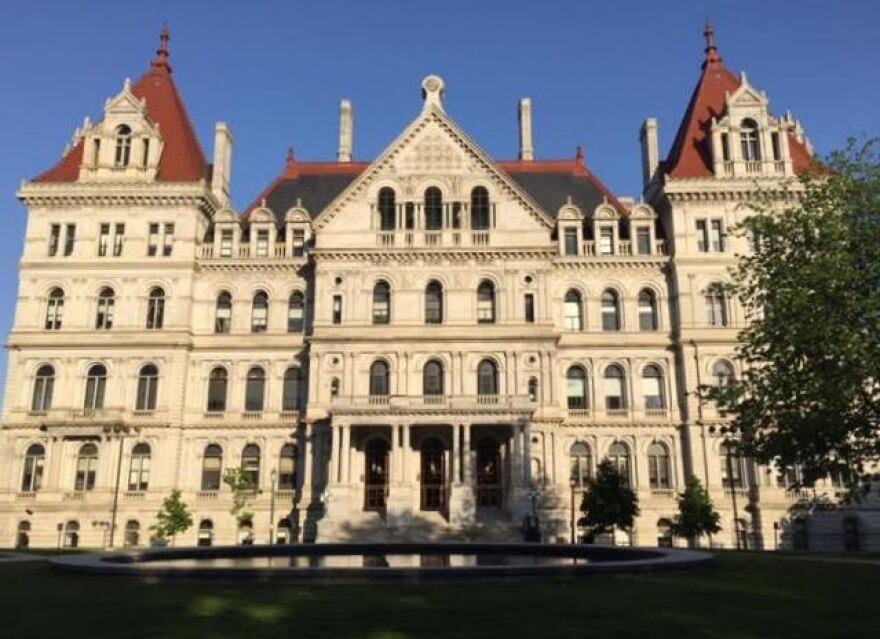The State Senate races are among the closest contests in New York on November 6th. Democrats need just one seat to take the majority away from Republicans. Spending on the races is growing intense, and accusations are flying.
Senate Democrats in the past have been outspent by the Republicans, who are in power in the chamber. This year, Democrats still have a smaller campaign account, with around $700,000 still on hand, according to filings with the state Board of Elections. The GOP Senate campaign committee had $2.3 million at the time of the last filing, in early October.
But Democrats are getting some extra help. Governor Andrew Cuomo is spending $2 million, partly from his campaign account and partly through the state Democratic Party on ads that the Democratic governor says are aimed at “flipping” the Senate to the Democrats.
Political Action Committees, or PACs, many of them associated with unions, are also benefitting Democrats, including the New York State United Teachers union PAC “Fighting for Our Future." It’s spent nearly $1.5 million on mailings and ads against several incumbent Republicans.
Meanwhile, PACs affiliated with charter schools, which have given money to GOP state Senate candidates in the past, have held back on spending. One, New Yorkers for a Balanced Albany, has almost $6 million in its account, according to filings with the New York State Board of Elections, but had spent just over $100,000, one month before elections. In 2016 the group spent more than $1.5 million.
The PAC funded by major real estate companies, Jobs for New York, also has been sitting out the election cycle so far.
The spending by the teachers union angered State Senate Majority Leader John Flanagan, who criticized the spending Monday on the public radio talk show the Capitol Pressroom.
“We have what I describe as outside forces, and some of them have now become almost like the forces of evil,” Flanagan said.
He went on to say, that by “forces of evil” he meant the teachers union.
Flanagan, a former Education Committee Chair, says he respects the “tens of thousands of very good teachers across the state of New York," but he says the Senate GOP won’t “blithely go along” with the union leaders.
NYSUT President Andy Pallotta says the remarks insult teachers.
“We’re talking about bus drivers and kindergarten teachers. Where is the evil?” Pallotta said. “It’s just ludicrous. He is really desperate.”
Pallotta says his union has endorsed Republican senators numerous times in in the past. But the union broke with the senators after Pallotta says the GOP majority stymied a bill that would reverse some provisions in the controversial Common Core standards that required teachers be judged on the standardized test scores of their students.
Senator Carl Marcellino sponsored the measure, with 55 out of 63 senators on the bill, but a provision was added to increase the number of charter schools in New York City. Assembly Speaker Carl Heastie, a Democrat, called the provision a “poison pill," and the bill died in the Assembly. Pallotta says the union does not base it’s endorsements on party affiliation.
“Two years ago we endorsed about 20 Republican senators,” said Pallotta who said the union also did not endorse five Democratic senators who voted for what he says is the “poison pill” bill.
Marcellino’s seat is now considered vulnerable, along with those of some other key Republican senators.
Meanwhile, the State Republican Party filed a complaint this week with the state Board of Elections alleging that the union funded PACs are illegally colluding with the Democratic senate campaigns. Pallotta calls the charges groundless, and says the PAC and the union “follow the letter of the law.”







